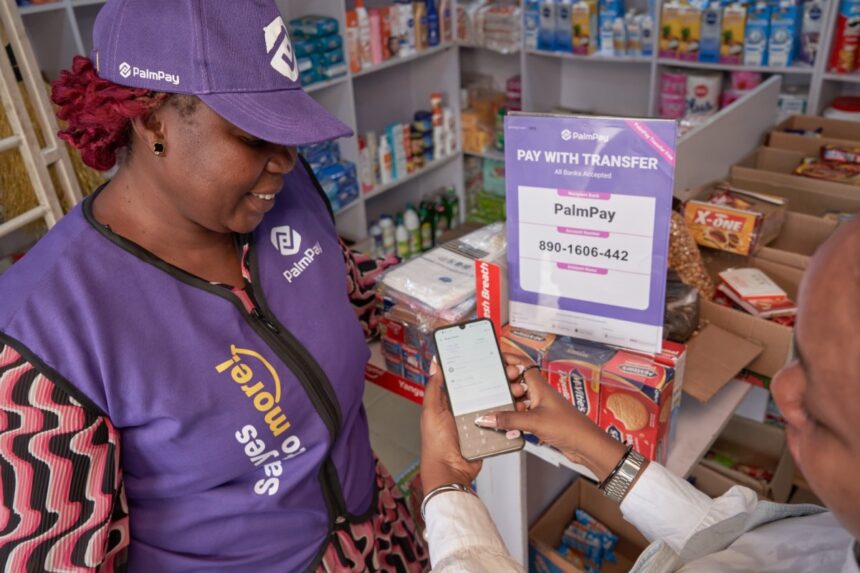PalmPay in Talks to Raise $50-100 Million in Series B Round
PalmPay, the African digital bank fintech, is currently in discussions to secure between $50 million and $100 million in a Series B funding round, according to sources familiar with the matter. The valuation it aims to achieve is still unknown, but its previous funding round in 2021 positioned it as one of the most valuable startups on the continent, just shy of unicorn status.
Although PalmPay has chosen not to provide specific details on the fundraising process, a spokesperson has stated that the six-year-old company is in a strong financial position and is exploring opportunities for growth. With nearly $140 million raised from its seed and Series A rounds, PalmPay has now become profitable, according to insiders familiar with its financials.
The anticipated capital injection, comprising both equity and debt, will support PalmPay’s expansion efforts. This includes strengthening its presence in Nigeria, scaling its newer business-focused offerings, and introducing its products in new markets across Africa and Asia.
Last month, PalmPay announced a milestone of 15 million daily transactions driven by 35 million registered users. These transactions now amount to “tens of billions of dollars” annually in value, as reported by the company.
Revenue has also experienced significant growth, with PalmPay’s revenue reaching $64 million in 2023, according to the Financial Times. Sources familiar with the company’s financials indicate that this figure has more than doubled since then.
PalmPay’s Journey to Success
Established in 2019, PalmPay originated in Nigeria, the continent’s most populous country and a key fintech hub. At that time, over half of Nigerian adults were unbanked, and traditional banks primarily served salaried or formal-sector clients, often excluding mass-market users.
PalmPay identified an opportunity to disrupt this model by creating a digital bank tailored to Africa’s informal economy. The company launched an app with instant onboarding, zero transfer fees, and a range of services such as credit, savings, insurance, and bill payments customized for underbanked consumers and small businesses.
Unlike relying solely on digital customer acquisition, PalmPay established a vast network of over 1 million small businesses and agent merchants. These partners now serve more than 10 million customers monthly through the PalmPay Business app and point-of-sale devices, offering cash-in and cash-out services.
Similar to other prominent fintech companies in Nigeria like OPay, Moniepoint, and Paga, PalmPay adopted a hybrid model combining digital apps with physical touchpoints to reach a broader audience.
PalmPay’s Strategic Partnerships and Expansion Plans
PalmPay claims to process more transactions than any traditional bank in Nigeria, with 25% of its users reporting PalmPay as their first-ever financial account. This number rises to 60% among borrowers using PalmPay’s credit products in collaboration with licensed lenders.
A key advantage for PalmPay is its partnership with Transsion, the dominant Chinese smartphone manufacturer in Africa with over 40% market share. Through this collaboration, PalmPay pre-installs its app on select financed smartphones, driving user acquisition and engagement.
Having solidified its position as one of Nigeria’s most widely used fintech apps, PalmPay is now gearing up to replicate its success in new international markets. The neobanking platform has expanded to Tanzania and Bangladesh, marking its initial venture outside Africa, with plans to introduce device financing and consumer credit before offering additional services.
PalmPay also intends to introduce device financing in Nigeria, in addition to exploring collaborations with more original equipment manufacturers (OEMs) alongside its strategic partner Transsion.
Investors in PalmPay include GIC, Singapore’s sovereign wealth fund, and Mediatek, one of the world’s largest mobile chipset makers.
Business-Focused Solutions and Cross-Border Payments
On the business-facing side, PalmPay offers cross-border payment solutions for merchants seeking to send and receive payments across Africa through a single API. This newly launched feature, currently operational in Nigeria, Kenya, and Tanzania (with South Africa to follow), processes “hundreds of millions of dollars monthly,” as confirmed by a company spokesperson.








